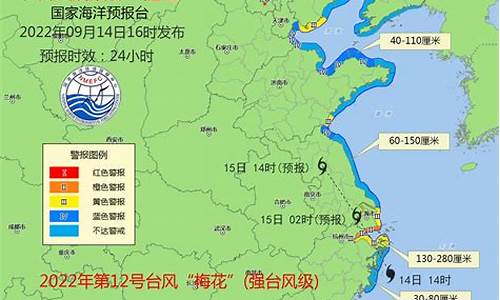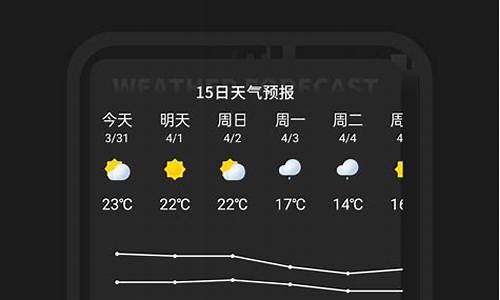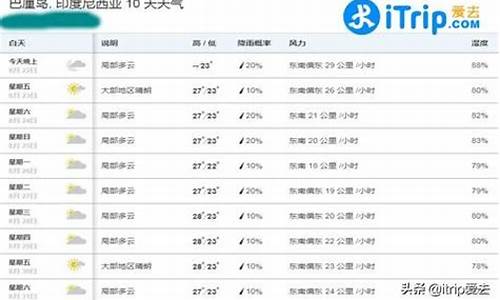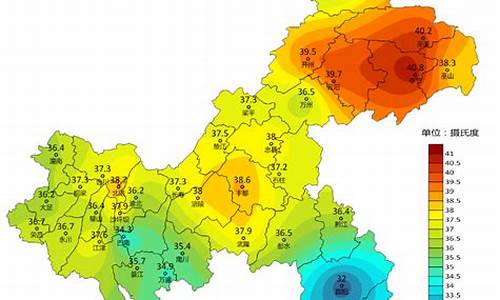问气候的英语句型_问气候的英文
1.what在什么句型里不作成分,它可以作成分么?还有什么that which又如何?请高人帮我总结下!越全越好!
2.“weather”怎么读?
3.用英文介绍法国的天气,不用很长,句型不要太复杂,还要说几句那里的风土人情,非常感谢~~
4.很简单的英语问题..
5.it 用来指代时间、距离、温度、天气等 各给一个例句

答案是:C
What about (eating something)?
用法:
What about … 和 how about … 是英语口语中常用的两个省略句型,它们的意思和用法基本相同,常常用在以下场合。例如:
一、向对方提出建议或请求。例如:
1. How about going out for a walk? 出去散散步好吗?
2. What about another cake? 再吃块蛋糕好吗?
二、征询对方的看法或意见。例如:
1、 What about the playing the violin? (你认为)她的小提琴拉的怎么样?
2、 What about the TV play? 那个电视剧怎么样?
三、询问天气或身体等情况。例如:
1、 What about the weather in your home town? 你们家乡的气候如何?
2、 How about your uncle now? You can’t lee him by himself. 你叔叔近来身体好吗?你们不能单独让他生活。
四、寒暄时用作承接上下文的转折语。例如:
I am from Beijing. What about you? 我是北京人,你呢?
五、对所陈述的情况做出反诘,常给予对方一种暗示。例如:
——My memory is good. I’ve never forgotten anything.我的记忆力很好,从不忘记什么。
——What about that time you left your key to the office at home?那次你将办公室的要是忘在家里算是怎么回事呀?
what在什么句型里不作成分,它可以作成分么?还有什么that which又如何?请高人帮我总结下!越全越好!
教材分析:
本单元主要围绕“季节和气候”这个话题展开活动,所涉及的日常交际 项目有介绍、询问、建议等。其中,以“询问天气”及其应答为重点内 容,同时也学习一些常用的与气象有关的词汇。
教学目标:
1.能听得懂、会说、会读和会拼写单词season, next, weather, summer, autumn, best, spring, winter。
2.能听懂、会说、会读词汇 because, countryside, warm, cool, rain, rainy, sunny, windy, snowy, cloudy, go rowing and fishing,snowman,most.
3.能听得懂、会说、会读和会写四会句型:What's the weather like...?.
4.能听懂、会说、会读日常交际用语Which season do you like best? I like... Why? Because it's ... I can?.
5.了解字母组合ow在单词中的发音。
6.能诵读歌谣《Seasons》
教学重难点:
1.各季节、气候特征读法及含义
2.初步了解掌握句型:Which season do you like best? I like?Why? Because it’s ?I can?What’s the weather like ?。
3.能正确理解、掌握对话内容并能朗读、表演对话。
教学准备:
1.录音机和本课的磁带。
2.依照课本制作多媒体课件。
3.板书准备:预先写好课题Unit 5 The seasons 课时安排:
共六课时
“weather”怎么读?
what在英语中是个很常用的词。我们知道它能用作疑问词,引导特殊疑问句,在句中做主语、表语或宾语;又能用作连接代词(或复合关系代词),引导主语从句、表语从句或宾语从句;还能用作疑问形容词,只作定语并可表示感叹。对于这些常规的用法本文就不一一赘述,现就what在高中英语中的某些特殊用法归纳如下:
1. what = just as,意为“恰像,犹如,好比”用作连词,引导比较状语从句。
⑴ 惯用句式是:A is to B what C is to D. 意为“A对B而言正如C对D一样”例如:
① Air is to us what water is to fish. 空气对于我们犹如水对于鱼。(介词to 表示两者的关系)
⑵ 也有“A is for B what C is for D.”句式。例如:
② Poultry is for the cook what canvas is for the paint. 厨师离不了家禽正如画家离不开画布一样。(介词for表示“供…使用”)
⑶ what 引导的从句也可以放在句首,其句式是:What C is to D,that A is to B.(= A is to B what C is to D.)
在这一结构中,喻体在前,主体在后,相当于“just as…,so…”结构,意思也是“A对B而言正如C对D一样”例如:
What blood vessel is to a man’s body,that railway is to transportation.(=Just as blood vessel is to a man’s body ,so Railway is to transportation.)
铁路对于运输,好比血管对于人体一样。
2. what 与do with连用,意为“(怎样)处理、安排或对付等”。what常有较灵活的翻译,常用结构是:“what …do with sth./sb.?”或“what to do with sth./sb.” 例如:
① What will you do with the letter? 你将把那封信怎样处理?
② The kids do not know what to do with themselves on rainy days.
孩子们不知道雨天干什么好。
注意:do with 与deal with同义,但搭配不同:do with只能与what搭配,而deal with可与不同的疑问词搭配。比较:
③ How will you deal with the letter?你将那封信怎样处理?
④ You may he some idea of what the astronauts he to deal with if you try to drink a glass of water while standing on your head or while just lying down.
如果你试着倒立着或仅以躺着的姿势去喝水,就能大致体会得到宇航员必须应付什么了。
3. 问价格、度量、速度、人口、面积、门牌(汽车、电话等)号码等时,只能用what提问,不能用how much提问。例如:
① What is the cost(price)of the gold watch?这块金表多少钱?
② What is the speed of the car?车速是多少?
③ What is the length(width、depth)of the lake?这湖有多长(宽、深)?
④ What is the population(area)of China?中国的人口(面积)有多少(大)?
⑤ What money(cash) he you got? 你有多少钱(现金)?
⑥ What is your telephone (car、room)number?
你的电话(汽车、房间)号码是多少?
4.“What is …like?”的两种含义。
⑴ 表示“情况怎样”,多指天气或气候。例如:
① What is the weather like today?今天天气怎样?
② What is the climate like there?那里的气候怎样?
⑵ 表示“像什么样,什么模样,怎样的” 指人或事物。例如:
③ What is the camel like ?骆驼是什么样子的?
④ — What is your teacher like?— She is very kind and beautiful.
“你老师是怎样一个人?”——“她既善良又美丽。”
⑤ What will life be like in the future ? 未来的生活是什么样子呢?
注意:“What is…like?”通常用于对某人、某地和某物的实际情况提问,包括对其内在的品质或外在的特征(或持久的特征)提问。而“How is … like?”是就某人、某地和某物的外观询问对方的看法,可以用来询问变化的事物,如暂时的情况,情绪等,还常用来问候别人的健康。如:
⑥ How is your work these days? 近来你的工作情况如何?
⑦ How is he? 他近况如何? (他身体近来怎么样?)
比较:What does she look like?她是什么模样?(What… look like?只能指外表 )
5.“What do you think of…?”用于询问对方对……的看法或评价。例如:
① What do you think of the idea?你认为这个主意怎样?
② What did you think of that film?你对那场**评价如何?
注意:“ What do you think of…?”是惯用搭配,不能改为“How do you think of…?”。但我们可以说:How do you feel about the idea(that film)?或者How do you like the idea(that film)?
6.what 用作复合关系代词时,既可指代人又可指代物。例如:
① China is no longer what it used to be? 中国已不是过去的中国。
② She is what you call a “bluestocking”。 她就是你说的“女才子”。
③ She is not what she was five years ago. 她不再是5年前的她了。
7. what从句可用作宾语补足语或状语。例如:
① We will make the factory twice what it is today. 我们将使工厂比现在规模增加一倍。(句中的twice what it is today是动词make的宾语the factory的补足语)
② Grity is what makes you weigh what you weigh. 地心吸引力使人称得现有的重量(句中的第一个what到句末为表语从句;句末的what you weigh 是说明前面的动词weigh,系回答how much 的问题,作状语)
8.像how和why一样,what可以用作名词。例如:
① Please explain to us how and why,since you know what. 既然你想出一个好办法,请给我们解释清楚解决这个问题的方法和理由。
② By asking why,how and what if,curious minds find new ideas and solutions.
通过刨根问底,提出设,富有求知欲的天才人物想出了新主意,找出了解决问题的新办法。
9.与what连用的常用句型和词组
⑴ What if…?What will or would hen if…?如果(如)…将会怎么样?例如:
① What if it is true?如果这是真的又怎么样?
② What if a storm should come up?万一发生暴风雨怎么办?
⑵ what with:because of ;as a result of;因为;由于……的结果;例如:
③ What with overwork and (what with)so little sleep,she fell ill.
一半由于工作过度的劳累,一半由于睡眠不足,她病倒了。
④ She has been depressed,what with losing her job and hing to move.
她由于丢了工作还要搬家而感到沮丧。
⑶ and what not :and so on ;etc;以及各种其它东西;诸如此类;等等;例如:
⑤ I bought sugar,tea,eggs,and what not. 我买了食糖、茶叶、鸡蛋之类的东西。
⑷ come what will(may)是固定搭配必须倒装,意为“不管发生什么事”“不管怎样”
⑥ Come what will (may),I will always stand by you.
不管发生什么事,我将永远支持你。
that和which的用法
* that可代表人(a),也可代表东西(b):
a. He that would eat the fruit must climb the tree. (谚)想吃果子就得爬树。
…
b. I reached the gate that opened onto the lake. 我走到临湖而开的那扇门前。
He expressed the hope that we would keep in touch with his firm. 他表示希望我们与他的公司保持联系。
在从句中作宾语时,that常可省略:
This is the best hotel (that) I know. 这是我知道的最好的旅馆。
…
* which只能代表东西或动物:
I want to take away the book which you showed me yesterday. 我想带走你昨天给我看的那本书。
She was not in the train which arrived just now. 她不在刚到的火车上。
当它在从句中作宾语时常常可以省略:
This is the book (which) you want. 这是你要的书。
…
which还可在从句中作介词的宾语:
The situation which he found himself in was difficult. 他的处境非常困难。
…
在这种从句中,只有which可以紧跟介词,that则不可以(在最后两个例句中which都不能换作that)。如果which不紧跟介词,则一般可换为that,也可以省略:
This is the house (which/that) I went into. 这就是我进去过的那座房子。
Tips: who,that,which有相似之处,也有不同之处。一般说来代表人时多用who(m),代表东西时用that时更多一些,有时也可用which,在紧跟介词时只能用which,不能用that。在从句中作宾语时,这些关系代词常可省略。
62 限制性定语从句和非限制性定语从句
定语从句有两类:限制性定语从句(restrictive attributive clauses)和非限制性定语从句(non-restrictive attributive clauses)。
* 限制性定语从句:前面所给例句基本上都包含限制性定语从句,它限制所修饰名词或代词的意义,一般说来如把从句去掉句子意思就不清楚,甚至失去意义。例如下面句子,有定语从句时意思很清楚,若把从句去掉,句子或是变得模糊不清,或是变得没有意思:
This is the machine he design. 这就是他设计的机器。
(若把he design去掉,意思就不清楚。)
Madame Curie was a woman we admired. 居里夫人是我们崇拜的女性。
(若把从句去掉,句子就失去意义。)
把前面例句都这样试一遍,你就会发现这些从句很重要,对说明所修饰词的意义不可或缺,是句子的主要组成部分。译成汉语时也多译成一个定语(如“他设计的机器”,“我们崇拜的女性”)。只有在限制性定语从句中,且在从句中作宾语的关系代词才能省略。
* 非限制性定语从句:
另外有一种定语从句,与主句(句子的其他部分)关系不太紧密,对所修饰名词或代词的意思没有太大影响,把它们拿掉,句子依然很完整,它们可以说是附加上去的东西,而且通常都有逗号把它们和句子的其他部分分开,这种从句称非限制性定语从句。这种从句只能由who(m),whose和which引起:
Peter, who had been driving all day, suggested stopping at the next town. 彼得开了一天的车,建议在下一个城镇停一停。
Anne, whose children are at school all day, is trying to get a job. 安妮的孩子们全天上学,她想法找一份工作。
The 8:30 train, which is usually very punctual, was late today. 八点三十分的火车通常很准时,但今天晚点了。
这种句子译成汉语时常译成两个并列句,这从上面例句的译文中可以看出。在非限制性定语从句中不能使用that作关系代词。
* which的特殊用法:
在非限制性定语从句中,which可以代表主句的一部分甚至全部,而不仅限于一个名词或代词,而which引起的从句用作修饰整个主句:
This I did at nine o’clock, after which(=doing it) I sat some time reading the paper. 我九点钟坐了这事,之后我就坐着看了一会儿报纸。
He invited us to dinner, which was very kind of him. 他请我们去吃饭,这是他难得的好意。
which在从句中还可用作定语:
He advised me to hide behind the door, which advice I took at once. 他让我躲在门后,我立即照做了。
He studied computer science, which knowledge is very important today. 他学的是电脑,这门知识现在很重要。
which有时代表后面的意思:
He hung around for hours and,which was worse,kept me from doing my work.
他闲呆了好几个钟头,更糟糕的是,这使我也没法工作。
在书面语中,有时还把这类从句写成独立的句子:
From which he learned a few lessons which were later of value to him. 从中他得到了一些教训,对他后来很有用处。
which还可和不定式一起用:
Allow me one minute in which to change my costume. 给我一点时间换装。
She has a little money in the bank, with which to help her mother. 她在银行存了一点钱,用这钱帮助她的母亲。
用英文介绍法国的天气,不用很长,句型不要太复杂,还要说几句那里的风土人情,非常感谢~~
weather的读音为英 [?we?(r)] 美 [?w]? 。具体释义如下:
weather 英 [?we?(r)] 美 [?w]?
1、名词 n.天气, 气象;暴风雨
例:The?scenery?and?weather?were?fabulous.?
景色和天气都好极了。
2、动词? vt.& vi.晒干, 风化
vt.平安渡过, 挨过;[地]使风化
例:Lying?here?in?this?pile,?I'll?simply?weather?and?rot.?
躺在这一堆木头里,只能等着被风化,然后腐烂了。
不同记性的不同句型举例
1、用作不及物动词? S+weather(+A)
例:Copper turns green as it weathers.
铜暴露在自然环境中就变绿。
2、用作系动词? S+weather+ adj.
例:Wood weathers better if it is treated with creosote.
木头经过杂酚油处理,日晒雨淋造成的损害就会小些。
3、用作及物动词? S+weather+ n./pron.
The wind and the wes he weathered the rocks on the shore.
风浪侵蚀了岸上的岩石。
4、用作宾补动词? S+eather+ n./pron. + adj.
例:The wind and sea he weathered the rocks quite smooth.
这些岩石因风和海水的风化变得非常光滑。
扩展资料:
一、weather作n.(名词)时
1、weather的基本意思是“天气,气象”,指某一地区某一时间的具体天气情况,如阴晴、气温、降水、风力、风向等。weather引申可指“处境”。
2、weather是不可数名词,其前不可加不定冠词a,即使前面有bad, good等形容词修饰时也不可以,但其复数形式可表示“各种天气”。
二、weather作v.(动词)
1、weather用作名词时意思是“天气”,转化成动词指经过年复一年的风吹日晒使一些东西变质,即“风化”; 也可指经受住严峻的考验而最终“渡过”。
2、weather可用作及物动词,也可用作不及物动词。用作及物动词时,后接名词或代词作宾语,有时还可接以形容词充当补足语的复合宾语。weather有时还可用作系动词,后接形容词作表语。可用于被动结构。
3、climate一般指“某地经常性的气候”,是长时间积累的一种规律,如“上海下雨天很潮湿”。weather则指“某地一时的气候”,如“早上下雨了,下午转晴”。
4、不可以在weather前加冠词a。
5、weather可以以复数形式weathers出现,如in all weathers,表示“不论在那种天气”。
6、this weather有时可等同于in this weather。
例:Why are all the windows open this weather?
在这种天气里,为何把所有的窗户都打开了?
百度百科-weather
很简单的英语问题..
France is located in the western end of the European continent, is located in the Atlantic coastal region is relatively moderate climate change, in addition to the mountains and the northeastern region, the winter can be quite warm. Subordinate northeast continental climate, the summer heat and winter cold; the southern Mediterranean coast is a Mediterranean-type climate, dry summer, spring and autumn and less rainfall in short, the South unique, "Smith pull off the wind" (Mistral) is France toward the Mediterranean area a long valley to the dry cold wind, it is said there are 100 days a year are such a cold wind blowing.法国位在欧洲大陆的西端,位在大西洋沿岸地区的气候相对来说温和而有变化,除了山区和东北地区以外,冬天堪称相当温暖。东北部属大陆型气候,夏季炎热而冬季寒冷;南部地中海沿岸属地中海型气候,夏季少雨,春秋两季的雨量少且短,南方特有的[密斯脱拉风](Mistral)是 一种吹向法国地中海区隆河谷地的乾冷风,据说一年里有100天都吹着这种冷风。It seems all the year round can not be separated from the French wine, three meals a day, every meal can not be separated from liquor. They are used to clear before digestion with an aperitif, after dinner, by Cognac (brandy) liquor like to Xiaoshi, table, the Meat with red wine, eating fish and other dried seafood with white wine; Rose Red Department of general-purpose wine, both for the fish, can also be used under the meat. Although about the French, but does not drink. Table gathering of 35 people, 10 degrees up and down a bottle of wine is usually enough, people drink more mineral water. French people like it and most Westerners, not to persuade those who he the habit of just how much to drink法国人一年到头似乎离不开酒,一日三餐,每餐离不开酒。他们习惯于饭前用开胃酒疏通肠胃,饭后借科涅克(白兰地)之类的烈性酒以消食,佐餐时,吃肉类配红葡萄酒,吃鱼虾等海味时配白葡萄酒;玫瑰红葡萄酒系通用型,既可用于吃鱼,也可用于下肉。法国人讲究虽多,但喝的并不多。三五人一桌的聚会,一瓶10度上下的葡萄酒通常就够了,人们更多的是喝矿泉水。法国人也和大多数西方人一样,没有劝说酒量的习惯,喝多少随便
it 用来指代时间、距离、温度、天气等 各给一个例句
let's=let us 是缩写 相当于 i'm = i am
What about … 和 how about … 是英语口语中常用的两个省略句型,它们的意思和用法基本相同,常常用在以下场合。例如:
一、向对方提出建议或请求。例如:
1. How about going out for a walk? 出去散散步好吗?
2. What about another cake? 再吃块蛋糕好吗?
二、征询对方的看法或意见。例如:
1、 What about the playing the violin? (你认为)她的小提琴拉的怎么样?
2、 What about the TV play? 那个电视剧怎么样?
三、询问天气或身体等情况。例如:
1、 What about the weather in your home town? 你们家乡的气候如何?
2、 How about your uncle now? You can’t lee him by himself. 你叔叔近来身体好吗?你们不能单独让他生活。
四、寒暄时用作承接上下文的转折语。例如:
I am from Beijing. What about you? 我是北京人,你呢?
五、对所陈述的情况做出反诘,常给予对方一种暗示。例如:
——My memory is good. I’ve never forgotten anything.我的记忆力很好,从不忘记什么。
——What about that time you left your key to the office at home?那次你将办公室的要是忘在家里算是怎么回事呀?
参考资料:
距离:It's about 50 kilometers from here to my ranch.
从这儿到我的牧场约有五十公里。
时间:It's early yet.
还早呢。
温度:It's very hot.
天真热。天气:It's rainy (windy/snowy) 下雨了/刮风了/下雪了
1. (指已提及或心目中的人或事物)这,那,它
This is our new car. I bought it yesterday.
这是我们的新车。我昨天买的。
2. (指无生命物、动植物、性别不详的幼孩等)它
What a beautiful baby -- is it a boy?
多漂亮的孩子啊--它是男孩吗?
3. (作无人称动词的主语,表示时间、气候、距离等)
It's about 50 kilometers from here to my ranch.
从这儿到我的牧场约有五十公里。
It's early yet.
还早呢。
It's very hot.
天真热。
4. (置于句首或句中,引导后面的短语或从句)
I'd think it well worth while to go.
我觉得很值得一去。
5. (作为形式上的主语或宾语,用于表示强调的句型中)
But here it's my word that counts.
但这里是我说的话算数。
6. (用于某些动词、介词后面,词义含糊,构成习惯语)
Don't lord it over your friends.
不要对你的朋友摆威风。
名词 n. [U]
声明:本站所有文章资源内容,如无特殊说明或标注,均为采集网络资源。如若本站内容侵犯了原著者的合法权益,可联系本站删除。












